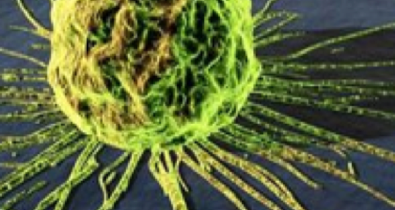FRIDAY MARCH 12, 2004
CANCER IMMUNOPREVENTION

This is a joint work with F. Pappalardo and S. Motta (Faculty of Pharmacy, and Department of Mathematics and Computer Science, University of Catania, Italy), and P-L. Lollini (Dipartimento di Patologia Sperimentale, University of Bologna, Italy and Centro Interdipartimentale di Ricerche sul Cancro ‘Giorgio Prodi’)
We implemented an in silico model that simulates the immune system responses to tumor cells in naive and vaccinated mice. We have demonstrated the ability of this model to accurately reproduce the experimental results.
In vivo experiments on HER-2/neu mice have shown the effectiveness of Triplex vaccine in the protection of mice from
mammar y carcinoma. Full protection was conferred using chronic (prophylactic) vaccination protocol while therapeutic vaccination was less efficient. Our in silico model was able to closely reproduce the effects of various vaccination protocols. This model is the first step towards the development of in silico experiments searching for optimal vaccination protocols.
In silico experiments carried out on two large statistical samples of virtual mice showed very good agreements with in vivo
experiments for all experimental vaccination protocols. They also show, as suppor ted by in vivo experiments, that the humoral response is fundamental in controlling the tumor growth and therefore suggest the selection and timing of experiments for measuring the activity of T cells.
F. Pappalardo, P.-L. Lollini, F. Castiglione, S. Motta. Modelling and Simulation of Cancer Immunoprevention Vaccine. Bioinformatics, 2005 Jun 15;21(12):2891-7.
(doi:10.1093/bioinformatics/bti426)
S. Motta, F. Castiglione, P.-L. Lollini, F. Pappalardo. Modelling vaccination schedules for a cancer immunoprevention vaccine. Immunome Research, 1:5, 2005.
(doi:10.1186/1745-7580-1-5) (http://www.immunome-research.com/content/1/1/5)
STUDY